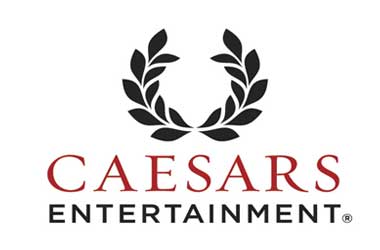U.S Lawmakers Raise Concerns About Caesars’s REIT Plan
 A number of U.S. Congress members have written to Treasury Secretary Jacob Lew to express their opposition to the move by Caesars Entertainment Corp to create a trust comprising its hotels and resorts which would enable it to secure significant tax benefits.
A number of U.S. Congress members have written to Treasury Secretary Jacob Lew to express their opposition to the move by Caesars Entertainment Corp to create a trust comprising its hotels and resorts which would enable it to secure significant tax benefits.
Struggling with over $18 billion in debt, Caesars filed for bankruptcy protection in January 2015. The company is proposing to reorganize its loss-making unit Caesars Entertainment Operating Co. into two parts. One of these parts will be a creditor-controlled real estate investment trust (REIT) which could enable the company to avoid significant tax liabilities and increase the chances of recovery for its creditors. The second part is establishing an operating company that will be responsible to manage REIT and its properties.
Credits find REITs better than stocks since bond holders of a REIT receive steady cashflow through interest payouts. The company first proposed the plan to create a REIT in November 2014. The company applied late last year for a private letter ruling from the Internal Revenue Service (IRS) to establish whether the REIT would be given a tax-free status. Caesars has warned that it would be detrimental to the success of its reorganization attempt if it is not able to get a tax-free status.
The letter sent by U.S lawmakers has stated that permitting this ruling would be tantamount to abusing the trust of investors who use REITs to diversify into real estate. In a statement, the lawmakers said,
The REIT would effectively shelter a considerable portion of the casinos' profits, thus functioning as a taxpayer-funded subsidy to one of the largest casino companies in the U.S. and its private equity owners
According to them the REIT could be also used to get around antitrust review procedures. The Congress has taken steps to limit use of REITs last year but permitted Caesars’ application to proceed since it had already applied to the IRS for a ruling. Caesars was created by private equity firms Apollo Global Management and TPG Capital from a buyout of Harrah’s Entertainment in 2008 for $31 billion. They have been engaged in lengthy legal battles with the creditors over their outstanding debts.
The enormous debt is the result of a loan taken at the time of the leveraged buy-out by the firms which has been compounded by factors such as the economic crisis which severely impacted its casino revenue. The collapse of Atlantic City’s casino market and the company’s inability to enter Macau has also played a significant role in limiting its growth and revenue earning opportunities.
The letter was signed by 15 lawmakers, 14 of them Democrats with one lone Republican in representative Frank LoBiondo from Atlantic City.
Related Articles
Ex-New Jersey Casino Workers Find Jobs In Atlantic City Call Center
The decline of Atlantic City’s casino industry during the last 22 months has caused four out of the twelve casinos
State Gambling Regulators Ready To Award Upstate Casino Licenses
The state gaming commission in New York made it clear in 2013 that something needed to be done quickly to
Genting Singapore Investments In South Korean Casino Project
Genting Singapore Plc, the operator of Singapore’s Resorts World Sentosa has announced that it is increasing its investments in its




